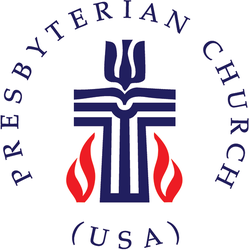Via amicus briefs, faith partners are often invited to respond to cases brought to the U.S. Supreme Court since they offer specific perspectives of morality and faith in potential decisions made by the judicial body. On Monday, September 18, 2017, the Reverend Dr. J. Herbert Nelson, II, the Stated Clerk of the General Assembly of the Presbyterian Church (U.S.A.), signed an amicus brief in Trump v. IRAP, et al, and Trump v. State of Hawaii, et al, before the U.S. Supreme Court with other interfaith religious institutions and organizations in opposition to the President’s Executive Order that was intended to stop all refugees from entering the United States as well as the nationals of six predominantly Muslim countries. Rev. Nelson’s reasons for signing on were that, “This brief is consistent with seventy years of policies adopted by the General Assembly of the [Presbyterian church] expressing the desire that refugees be welcomed into the United States and by our congregations, and with our policies which demand that U.S. immigration law and policy protect family unity and be carried out free of discrimination and full of due process.”
The amicus brief addresses two major concerns—religious discrimination and restriction on refugee admission. On religious discrimination, the brief states,
Amici are united in their embrace of the Nation’s fundamental constitutional commitments to religious freedom and non-discrimination. Amici believe the Executive Order contravenes those basic principles. The Order was intended to target Muslims—it has resulted in the vilification of Muslims, and it has obstructed Muslims in the practice of their faith. By undermining the constitutional guarantees of free exercise and non-discrimination, the Order harms not only Muslims but members of all faiths, who rely on those basic constitutional rights to freely practice their religions.
We uphold the freedom of religion as an irrevocable value in this country. For this freedom to reverberate through society, all groups must share in that freedom equally, otherwise we diminish its worth and meaning for all.
The Presbyterian Church (U.S.A.) has also been a long-standing supporter and partner of refugee resettlement in the United States. Our commitment to welcoming the most vulnerable has been a core value for decades. Therefore, the amicus brief also frankly addresses how the ban inexplicably burdens these groups of individuals saying,
The Order further targets refugees—the most vulnerable and oppressed populations in the world. We are in the midst of the largest refugee crisis of our time. More than 21 million refugees have fled war, persecution, terrorism, enslavement, and other horrific abuses. Amici’s faiths compel them to aid refugees in crisis. Yet the Order precludes people of all faiths from fulfilling their moral and religious obligations toward refugees in desperate need of assistance. It already has had a devastating impact on faith-based refugee-assistance programs, and it will continue to do so unless enjoined.
The decisions of the courts of appeals affirming the injunctions of the travel and refugee bans should be affirmed. (Ibid.)
This amicus brief is asking that these issues in the travel ban be found unconstitutional and terminated. It is important that faith institutions can bring the voice of morality and justice guided by the lens of faith to the courts. We have been on the forefront of welcome, hospitality, and solidarity when vulnerable peoples are unfairly excluded from a life that allows them to practice their faith or a life that affords them safety and protection. God challenges us to love one another. We are participating in this amicus brief to reflect that love. The amicus brief then challenges the nation to live up to its own values, too.

